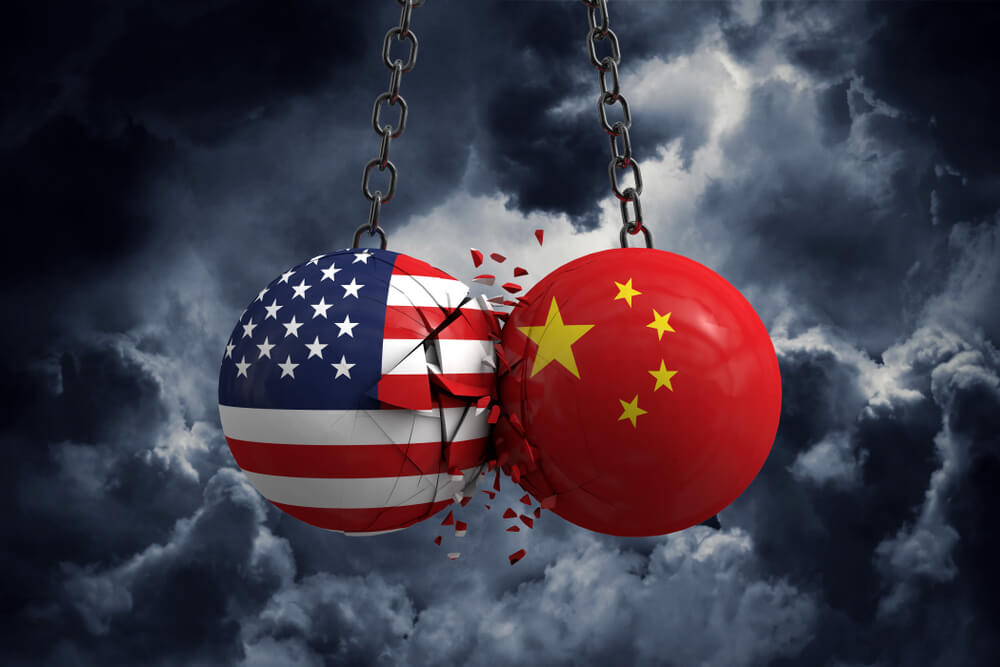China issued a pair of travel warnings for the U.S. on Tuesday and slammed what it called “interference” in its internal affairs.
Foreign Ministry spokesman Geng Shuang accused the U.S. of acting in bad faith in trade negotiations and said any attempts to interfere or undermine China’s stability would be “doomed to fail.”
The volleys of criticism between the two largest economies leave them further than ever from resolving their standoff over U.S. complaints that Beijing resorts to unfair trade practices and unscrupulous methods to obtain advanced technologies.
The Chinese comments followed a statement from the U.S. Trade Representative and Treasury Department late Monday criticizing a Chinese “white paper” report that defended Beijing’s stance in the stalled trade negotiations.
“The white paper has made it very clear that every twist and turn in the China-US. trade consultations were caused by the U.S.’s flip-flops, violations of consensus, and bad faith,” Geng said.
A travel warning issued by China’s Foreign Ministry and the Chinese Embassy and consulates in the U.S. said Chinese visitors have been interrogated, interviewed and subjected to other forms of what it called harassment by U.S. law enforcement agencies.
It urged Chinese citizens and Chinese-funded bodies in the U.S. to step up their safety awareness and preventative measures and respond “appropriately and actively.”
The alert, valid until Dec. 31, was “needed under the current circumstances,” Geng said.
China’s Ministry of Culture and Tourism also issued a travel alert on Tuesday, noting the high frequency of shootings, robberies and theft in the country. And on Monday, Chinese planning on studying in the U.S. were urged to assess the risks involved given tightened visa restrictions.
The statement posted on the USTR website accused Beijing of “unfair trade practices” that it said have cost the U.S. hundreds of billions of dollars and accused Beijing of pursuing “a blame game.”
It did not include any new actions against China. But it said the United States was “disappointed” by the report Beijing issued over the weekend defending China’s stance and accusing U.S. officials of backsliding in the talks.
“It is important to note that the impetus for the discussions was China’s long history of unfair trade practices,” the statement said. Such actions have “caused severe harm to American workers, farmers, ranchers and businesses.”
The two sides have held 11 rounds of talks over trade and technology issues and raised tariffs on hundreds of billions of each other’s goods, among other retaliatory measures.
The next step may be when President Donald Trump and his Chinese counterpart Xi Jinping attend a meeting of the Group of 20 leading economies planned for Osaka, Japan, in late June.
But with no sign of a fresh round of talks, the two governments have been trading blame and maneuvering to drum up domestic support for what is turning out to be a bruising trade war for farmers and manufacturers on both sides.
On Tuesday, the 30th anniversary of the brutal crackdown on pro-democracy demonstrations in Beijing’s Tiananmen Square, a commentary in the Chinese newspaper Global Times praised the ruling Communist Party’s decisions at such critical moments as crucial for creating the country’s “growth miracle.”
It cited the trade war as one of many problems that China’s economy has confronted in recent decades.
Geng echoed those comments, saying the government had done what was needed to ensure political stability.
China’s Communist Party leaders are stuck between doing what it needed to mitigate damage to the economy from a prolonged trade war and standing firm against U.S. pressure to give up an economic growth strategy based on state support for developing world leaders in key technologies, such as robotics and artificial intelligence.
He said those involved should “look yourself in the mirror, mind your own business, stop attacking and smearing China, stop interfering in China’s internal affairs, stop taking words and deeds that impair China-U.S. mutual trust,” he said.
© The Associated Press. All rights reserved.
